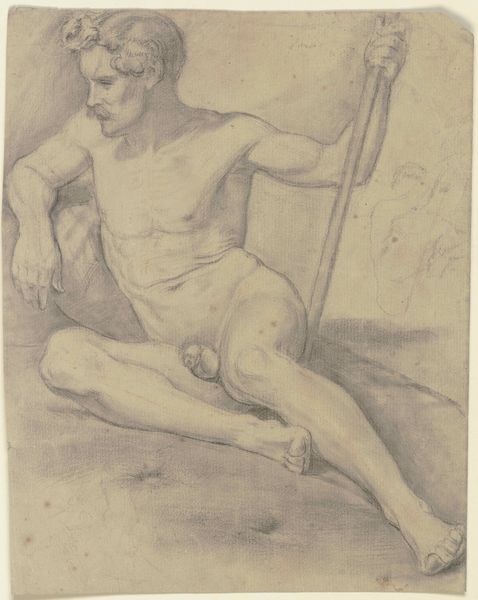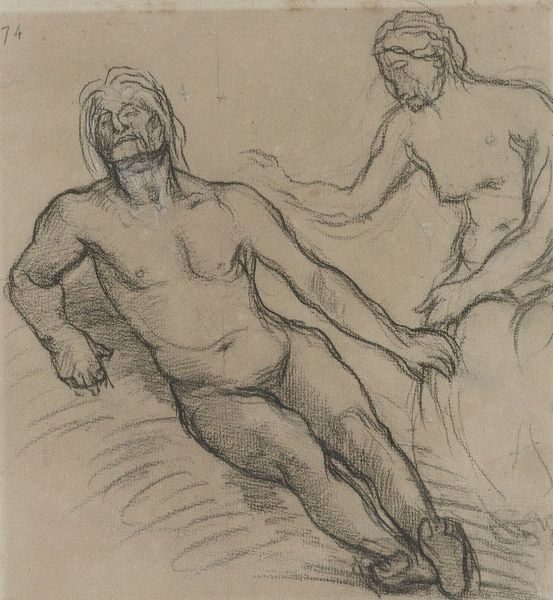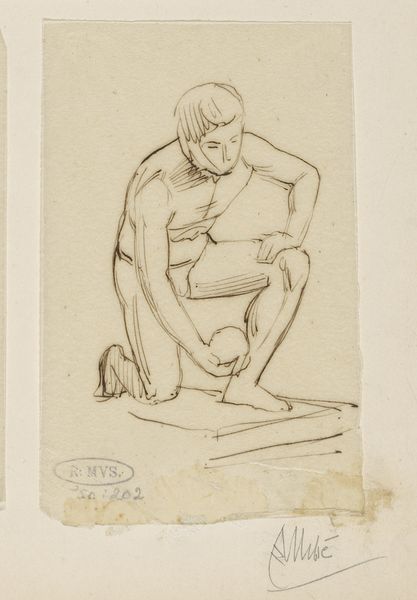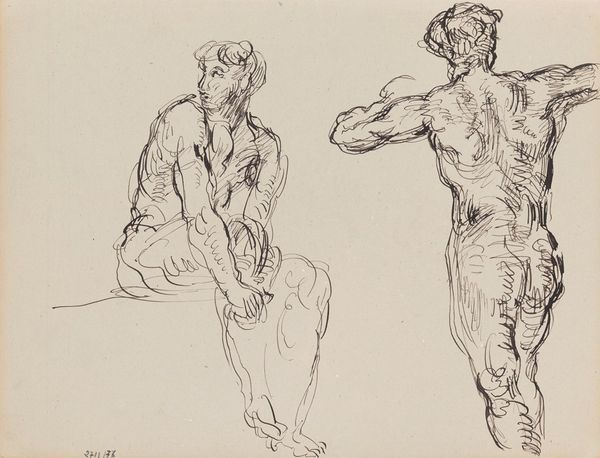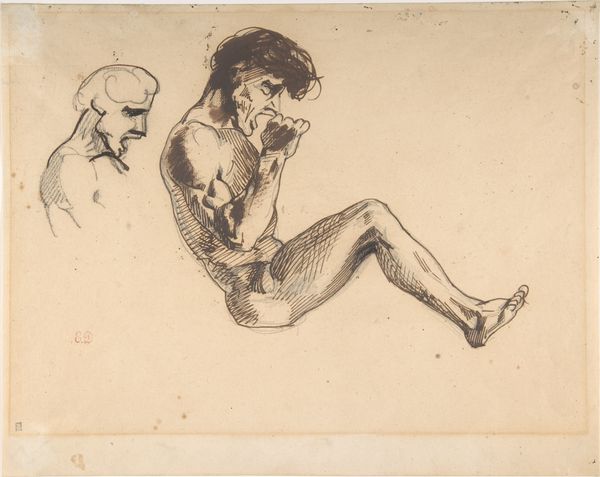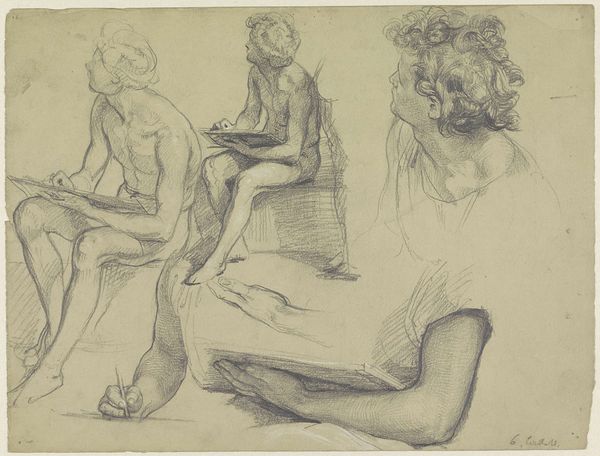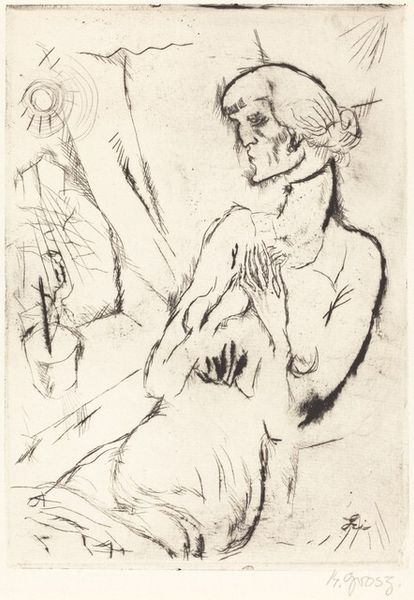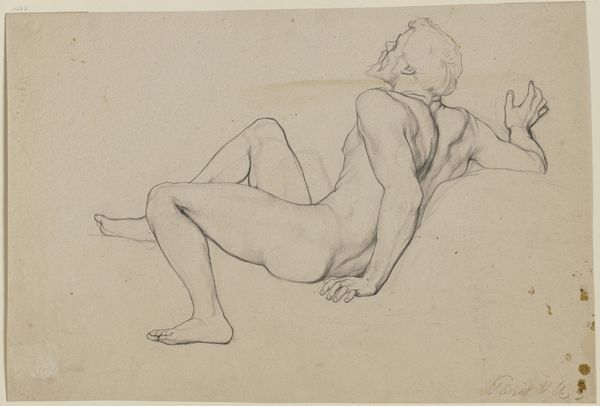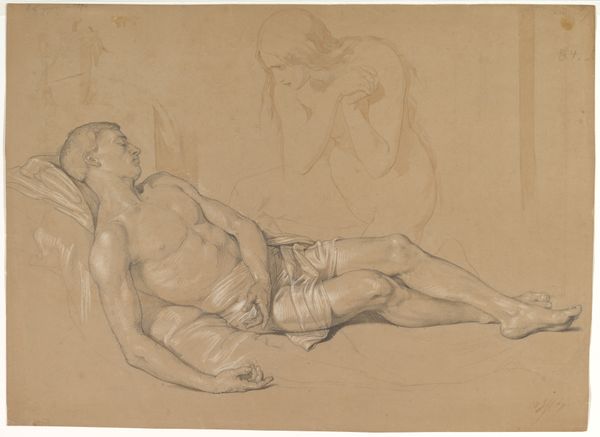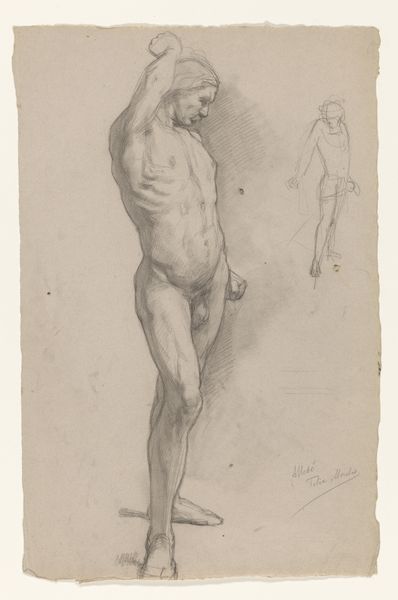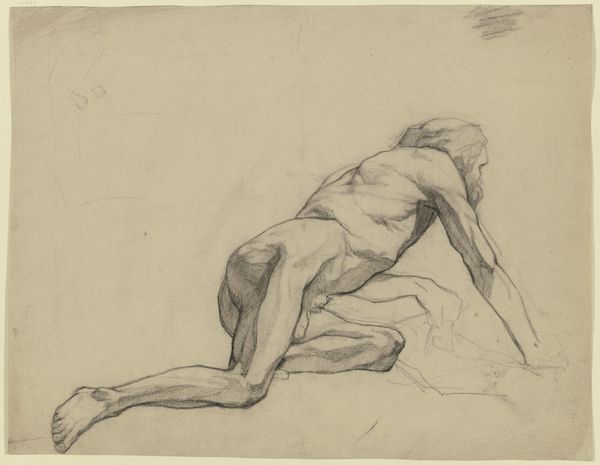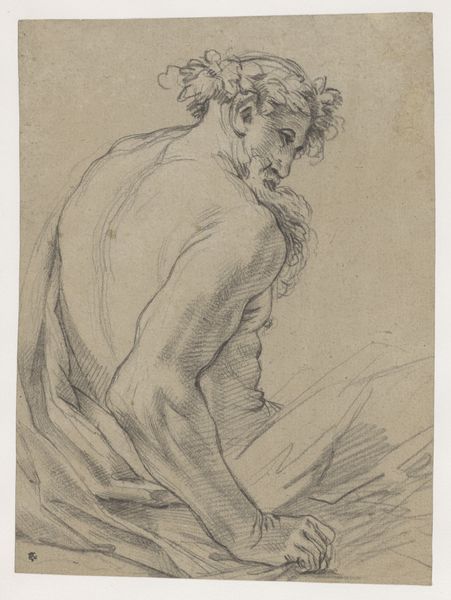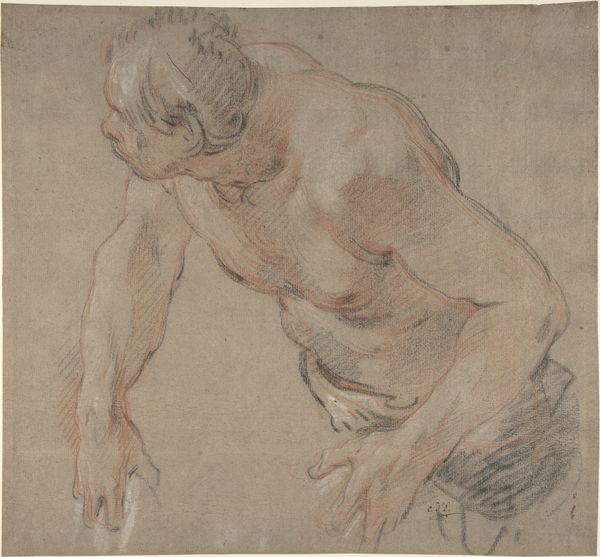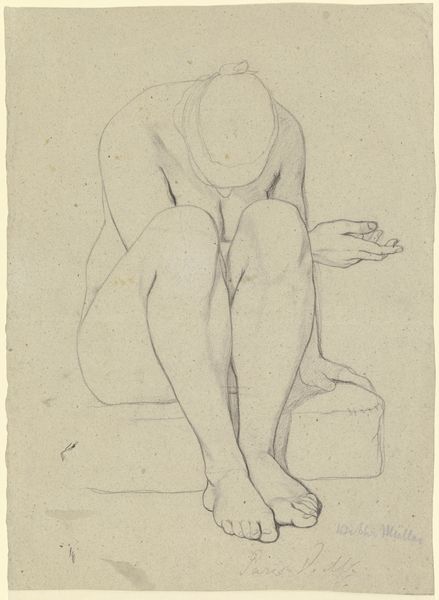
drawing, ink
#
portrait
#
drawing
#
imaginative character sketch
#
light pencil work
#
pencil sketch
#
figuration
#
personal sketchbook
#
ink
#
idea generation sketch
#
ink drawing experimentation
#
pen-ink sketch
#
sketchbook drawing
#
portrait drawing
#
storyboard and sketchbook work
#
nude
Dimensions: height 160 mm, width 166 mm
Copyright: Rijks Museum: Open Domain
Editor: We’re looking at “Zittend naakt met stok en drinkend staand naakt,” or "Seated Nude with Stick and Drinking Standing Nude" by August Allebé, made sometime between 1848 and 1927, using ink. It’s at the Rijksmuseum. What I immediately notice is how sketch-like it is. It feels very immediate, like a fleeting thought captured on paper. What do you see in this piece? Curator: The layering of images here is striking. The seated figure, juxtaposed with the standing one, creates a dialogue not just of actions—one at rest, one drinking—but also of interiority. The staff leaning against the seated figure may indicate authority, wisdom, pilgrimage even; consider its historical symbolism in classical art as the attribute of deities and leaders. Does the drinking figure partake in a symbolic act of imbibing knowledge or a ritual? Editor: That's interesting! I hadn’t thought about the "drinking" pose as being symbolic; I just saw someone quenching his thirst. Do you think the artist intentionally placed them together to have this sort of layered meaning, or are we reading too much into a simple sketch? Curator: Even a fleeting sketch can carry cultural weight. The act of portraying the nude body carries with it centuries of art-historical baggage. Are we seeing an allusion to classical ideals of beauty and strength, reinterpreted through a more modern, intimate lens? And why does the seated nude refuse to meet the viewer’s gaze? What do you think it might be suggesting about the subject's state of mind? Editor: It makes me wonder if the two figures are meant to represent different facets of the same person, perhaps a contemplation of action versus inaction? This feels far richer now. Thank you. Curator: The juxtaposition invites just that sort of introspective exploration. Visual symbols are seldom straightforward. Their resonance evolves across cultures and time, isn't it fascinating?
Comments
No comments
Be the first to comment and join the conversation on the ultimate creative platform.
